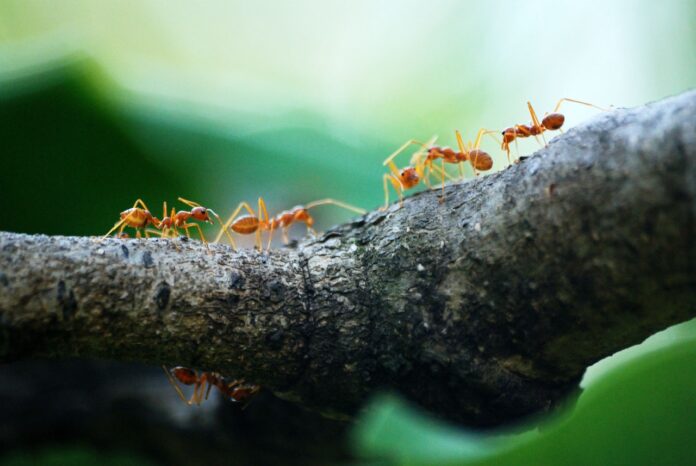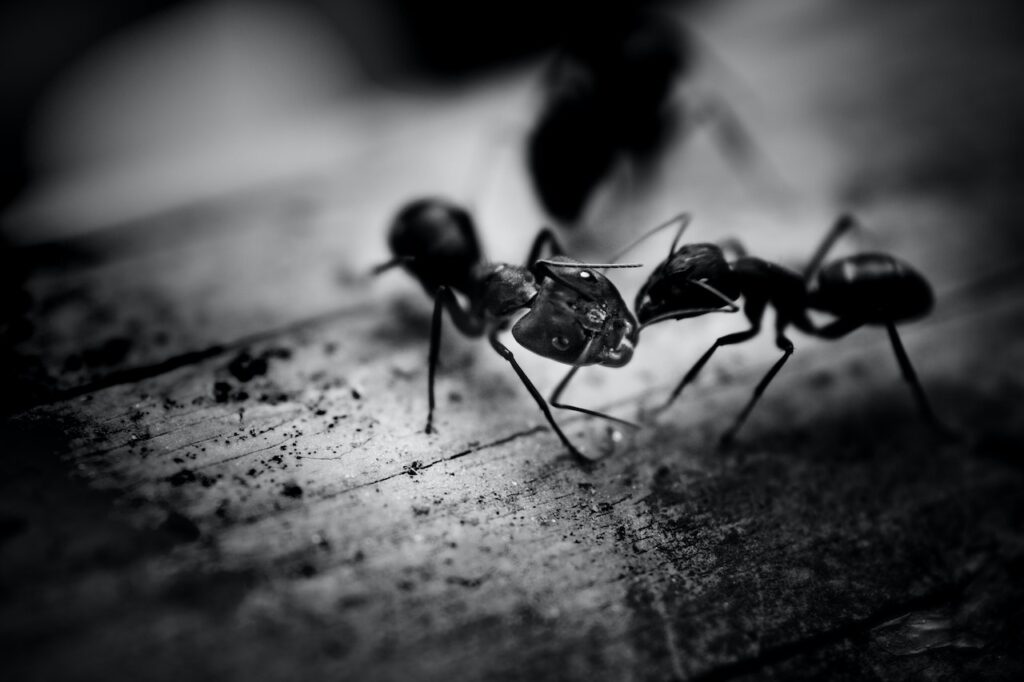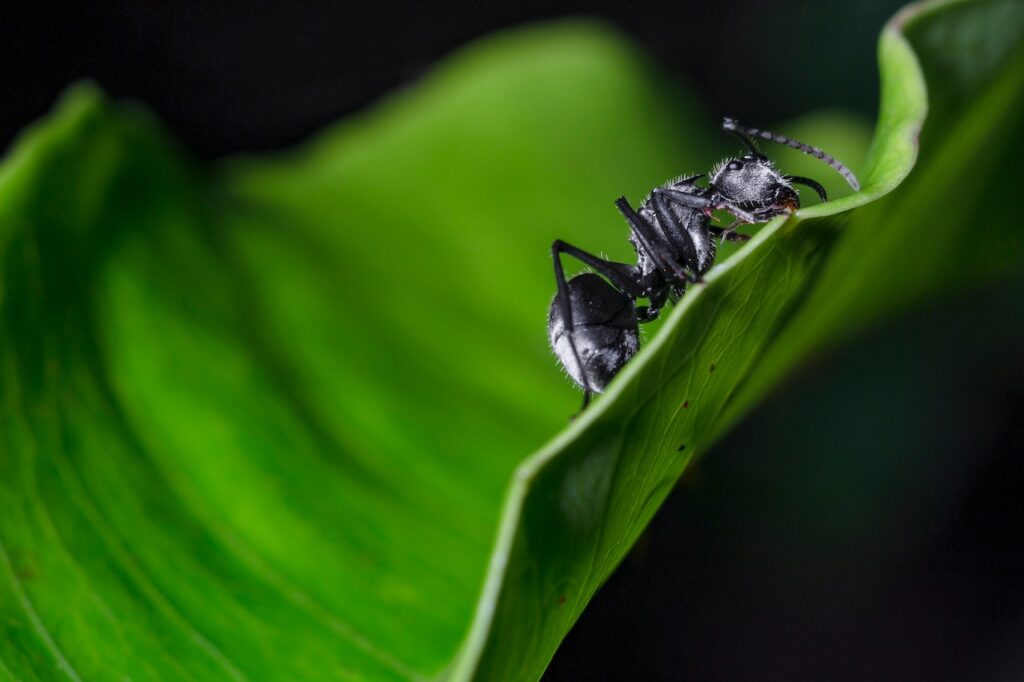
Ants are some of the most fascinating creatures on our planet. There are over 12,000 species of ants. And they are everywhere, from the rainforests of South America to the deserts of Australia. That makes them one of most widespread and populated species in the world. Adding to that their approximate number (at least twenty quadrillion by some scientist) and you get the full picture.
Ants are also known for their incredible strength and teamwork. By some investigations and tests, they can carry objects that are fifty times their body weight.
That is astonishing.
Just imagine how strong we (humans) would be if we were able to carry objects 50 times our body weight? Well, we would be real supermans. Namely, let’s say that the average body weight is around 70kg (154 pounds), then if we were like ants, we would be able to lift and carry objects weighing 3500 kilograms or 7716 pounds. There aren’t many cars that weigh that much. Just picture a person carrying Cadillac Escalade EXT or Dodge Ram 2500. Now that would be something else.
Ok, so going back to ants and their special abilities.
Related:
Ant Colony

Besides their unimaginable strength, they are also impeccably organized.
They have an extraordinarily complex social hierarchy with different roles for each ant. Some ants are workers, who gather food and take care of the nest, while others are soldiers, who protect the colony from predators. And then there’s also the queen ant, who is responsible for laying eggs and keeping the colony alive.
Interesting society huh? Seems like they are better organized than us humans.
Additionally, they are also famous for their fantastic communication skills. They use a variety of methods to communicate with each other, including chemical signals called pheromones. By leaving pheromone trails, ants can find their way back to the nest and communicate with other ants about food sources and potential threats.
We could also say that ants behave like engineers. They build complex nests and tunnel systems that can stretch for miles. These tunnels help to aerate the soil, improving its quality for plants and other organisms. In fact, some species of ants are so skilled at this that they’re actually used in agriculture to help cultivate crops!
There are many other fascinating facts about ants, and we could write whole book about it, but topic of this article is something else.
Namely we’d like to hypothesize what would happen if ants disappeared from Earth.
So, join us in this thought experiment and let’s find out potential consequences for the world, humanity, and other ecosystems.
Note: We wrote similar article explaining What would happen if mosquitoes went extinct. And conclusions are remarkably similar, however, ants could have even more dire consequences for wider ecosystems.
Extinction of Ants

Ants play a vital role in many ecosystems, so if they were to go extinct, it could have significant and far-reaching consequences.
So, let’s dive into potential consequences.
As mentioned previously, there are probably more than twenty quadrillion ants on our planet. That’s twenty thousand million millions or 20x 1,000 x 1,000,000 x 1,000,000 = 20,000,000,000,000,000. Enormous number just to see it on the screen.
So, with their sheer numbers they certainly have an impact on many other animals, plants, and overall ecosystems.
The real impact

Taking that into consideration we could name the following potential consequences of ant extinction:
- Ecological imbalances: Ants are an important part of many food webs and are key players in the ecosystem. They play a critical role in nutrient cycling, soil aeration, and seed dispersal, among other things. If ants were to go extinct, it could upset the balance of many ecosystems, leading to a cascade of unintended consequences.
- Decline in plant diversity: Ants are responsible for dispersing the seeds of many plant species. If they were to disappear, it could lead to a decline in the diversity of plant species, as some plants may not be able to disperse their seeds effectively.
- Impact on other species: Ants are a source of food for many other species, including birds, lizards, and other insects. If ants were to go extinct, it could have a ripple effect on the populations of these species as well.
- Agricultural impact: Ants are important predators of many agricultural pests, such as aphids and caterpillars. If ants were to disappear, it could lead to an increase in the populations of these pests, which could have a negative impact on crops.
- Impact to humans: We use ants mostly for agriculture to control pest populations so without ants we would not be able to do that. Nonetheless, humans have thousands of different methods for controlling pest populations, so we would be ok on that matter. Also, ants have been used in traditional medicine in some cultures, for example, to treat arthritis and other inflammatory conditions. But this is not the case anymore as we have modern medicine treating those conditions. However, we cannot know what would really happen as many other distressed ecosystems could have a larger impact on humans.
However, even though ants mostly have a positive impact on our planet, they can annoy us sometimes and make our lives harder.
For example:
- Ants can be a nuisance in homes and gardens, particularly if they are attracted to food or water sources.
- Some species of ants can cause structural damage to buildings and homes by burrowing through wood and other materials.
- Some ants are known to sting humans, which can be painful and potentially dangerous to those who are allergic.
- Certain species of ants, such as army ants, can be a threat to livestock and crops.
But to be frank, those are really minor things compared to all the positive things they do for this planet.
So, to conclude, the extinction of ants would likely have far-reaching and complex ecological consequences. However, it is important to note that the complete extinction of ants is highly unlikely, as they are incredibly adaptable and resilient insects.
Note: If you are interested in similar articles, on topic of “What would happen if”, you can check:
- What would happen if Moon disappeared?
- What would happen if we stopped fishing?
- What would happen if water disappeared on Earth?
- What would happen if lying never existed?
- What would happen if everyone was naked?
- What would happen if gravity suddenly disappeared?
- What would happen if everyone stopped having children?
- What would happen if mosquitoes went extinct?
- …and many more.



























